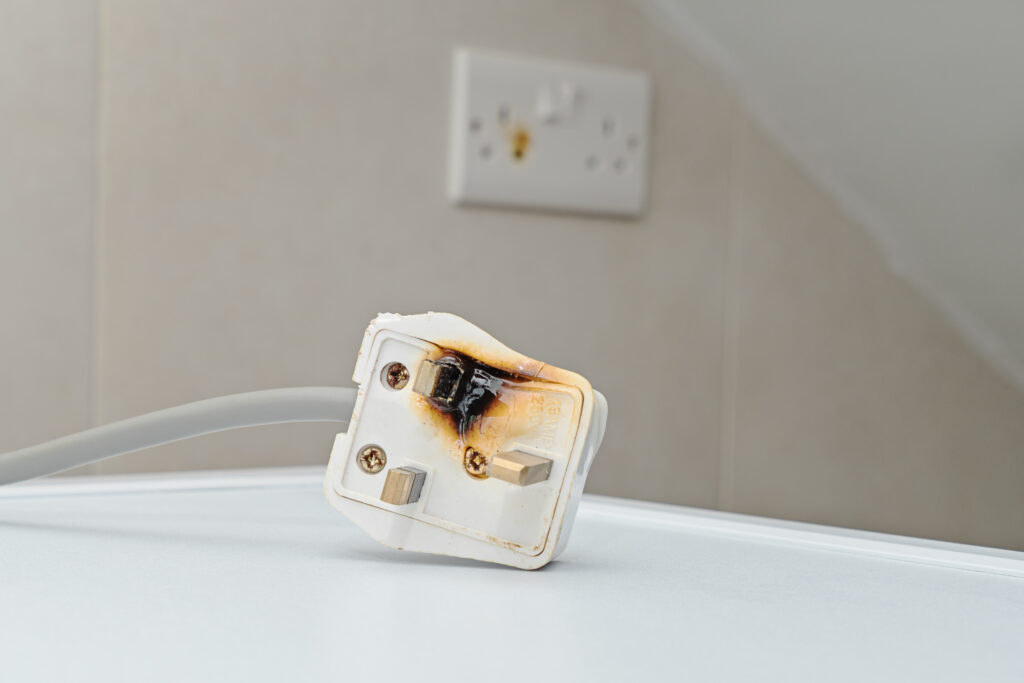How Do You Contest a Restraining Order?
If you are targeted with a restraining order in or near the Utica or Syracuse area, you will need the legal assistance and advice that a Syracuse restraining order defense attorney can provide, and you’ll need to get in touch with that attorney at once.
What does it mean to be the subject of a restraining order? If you’re served with a restraining order, what are your rights? What measures should you take? And what measures will a Syracuse defense attorney take on your behalf?
What is a Restraining Order?
Each year, nearly a million domestic violence incidents are reported to law enforcement agencies in the U.S., and about five hundred temporary restraining orders are issued every day in the State of New York.
According to the state’s Office for the Prevention of Domestic Violence, over 180,000 petitions for temporary restraining orders were filed in New York in 2021. Protective orders, restraining orders, and orders of protection all refer to the same type of court order. There’s no difference.
Which Courts Issue Restraining Orders?
Both criminal and family courts may issue restraining orders to protect alleged victims of crime and potential victims of domestic violence. Family courts specifically issue restraining orders for those seeking protection against domestic violence.
When a criminal defendant has allegedly harassed or stalked a stranger, a restraining order may be issued by a criminal court as a condition of that defendant’s release. Criminal court restraining orders are issued only against persons who face one or more criminal charges. If the criminal case is dismissed, the restraining order is vacated.
Restraining orders may also be issued by a New York Supreme Court. New York courts issue both temporary and permanent or “final” restraining orders. Temporary restraining orders may be issued immediately upon request and without a judicial hearing.
What Do Final Restraining Orders Provide?
A final restraining order issued by a family court may stay in effect for up to five years, and final restraining orders issued by criminal courts remain in effect for up to eight years. A restraining order from a New York Supreme Court at the end of a divorce proceeding stays in effect for life.
A final restraining order is a “limited” or “full” order. A limited restraining order may be issued if both parties are parents of the same child or children, and it allows limited contact. A full order bars any contact at all between the two parties.
What Do Restraining Orders Require?
Of course, a court order alone will not actually stop someone from stalking, harassing, or injuring another person, but a purported victim may report the violation of a restraining order and have the alleged abuser charged with contempt of court.
If you become the target of a temporary restraining order in the State of New York, you will be ordered to refrain from harassing, stalking, threatening, or injuring the person who requested the restraining order. In many cases, a restraining order may additionally order you to:
- avoid contact with the individual who requested the restraining order
- comply with a court’s child custody order
- comply with a court’s child support order
- move away from your home
- surrender to the police any firearms that are in your possession
How Do You Contest a Restraining Order?
Even if you believe a restraining order has been issued against you unjustly, you must comply with its conditions and terms. To contest a restraining order, you and your Syracuse restraining order defense attorney must ask for a hearing to show that the order should be withdrawn.
A restraining order doesn’t establish a criminal record, but if you violate a restraining order, you may face a contempt of court charge, and if you’re convicted of that contempt of court charge, you could be ordered to serve time in prison.
You can’t fight a restraining order by yourself. If you are targeted with a temporary restraining order, contact a Syracuse domestic violence defense lawyer immediately, and your lawyer will work to dissuade the court from issuing a final restraining order.
If the Claim Against You is Fabricated
Domestic violence poses a threat to many New York families, so authorities take domestic violence claims seriously, but judges, prosecutors, divorce lawyers, and defense attorneys also often deal with false claims of harassment and domestic violence.
Even if it’s based on a phony claim, a restraining order could force you out of your home. In a divorce, the custody of your child or children may be at stake.
Your Syracuse domestic violence defense lawyer may cast doubt on a false harassment claim or a false domestic violence allegation, but like every other claim made in a judicial proceeding, what is and isn’t “true” will, in the end, be determined by the court.
What Else Should You Know?
Whether the claim made against you is true or false, if you are the target of a restraining order, you should be defended and advised by a defense attorney who has considerable experience with restraining orders – a lawyer who will get to the truth and protect your rights.
But where can you find a lawyer who will provide personalized advice and fight aggressively and effectively for the truth – and for the justice you need?
Passalacqua & Associates Will Help You Fight a Restraining Order
Contacting a Syracuse defense lawyer at Passalacqua & Associates is your first step if you’ve been targeted by a restraining order or accused of violating a restraining order. If you’re the victim of a false claim, we’ll work to find the truth and ask the court to vacate its order.
Having the right defense lawyer can make the difference in these cases. Passalacqua & Associates will review your situation, clearly explain your options, and make sure that you’re treated justly and fairly throughout the legal process.
If you’ve been served with a restraining order in the Utica or Syracuse area, if you’ve been charged with the violation of a restraining order, or if a restraining order is issued against you in the future, call Passalacqua & Associates immediately at 315-277-3548.







